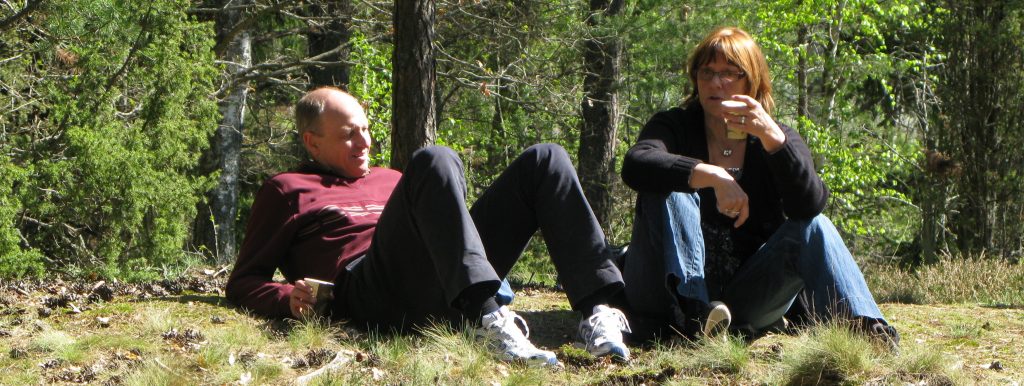The Power of Inner Development – Lessons from the Nordic Secret
In early February 2020, The New York Times columnist David Brooks wrote an insightful piece referencing The Nordic Secret, the ambitious and well-crafted book by Lene Rachel Andersen and Tomas Björkman (link to the article here). In it, Brooks draws attention to the profound transformation that unfolded in the Nordic countries from the early to mid-1800s—shifting from being among the poorest nations in Europe to becoming some of the world’s most resilient and equitable welfare societies.
Central to this transformation, he highlights, was a societal commitment to lifelong inner development—a structured effort to strengthen people’s inner capacities for reflection, understanding, responsibility, and engagement with an increasingly complex world. In an age of rising polarization, Brooks emphasizes cultivating empathy and expanding our circles of belonging. He writes:
“When you look at the Nordic Bildung model, you realize our problem is not only that we don’t train people with the right job skills. It’s that we don’t have the suitable lifelong development model to instil the mode of consciousness people need to thrive in a complex, pluralistic society.”

A Brief History: Bildung and the Rise of Folkbildning
The Swedish word folkbildning—which roughly translates as “popular enlightenment” or “people’s education”—first appeared in 1805, meaning “the improvement of education for the lower classes.” Folk means people, and Bildung means learning and inner growth. Together, they form a uniquely Nordic concept of non-formal adult education focused not on external demands but on the intrinsic desire to learn and evolve.
Bildung is about learning for its own sake. It is lifelong, self-directed, and deeply rooted in personal responsibility. More than a complement to formal education, folkbildning has served as a foundational force in strengthening both individuals and society.
Since 1912, the Swedish state has provided public funding for folkbildning, while keeping its operation independent from state control. All major political parties recognize its importance. The shared understanding has been clear: free, non-formal education cultivates openness and mutual respect across gender, age, religion, ethnicity, and socioeconomic background. Learning is organized in ways that foster horizontal relationships between leaders and participants, where everyone’s voice matters.
From Ego to Eco – Building Transformative Capacity
In times of rapid change—driven by technological breakthroughs, climate disruption, and social and economic instability—we need a different kind of leadership and learning. We need infrastructure to strengthen our capacity to adapt, relate, and take wise action. This is the role of transformative coaching and Learning Labs—to create spaces of psychological safety and growth, just as the Nordic countries once did with folkbildning. The same principles can now serve as a foundation for a global shift in consciousness.
At Nature Academy, our Learning Labs offer proven methods and tools for developing transformative capacity. The journey moves through three essential levels: Self, We, and Wider We.
- Self – Inner Awareness
Learning to observe the forces within—the emotions, desires, wounds, and drives—is key to true growth. When we learn to witness these inner movements, they no longer control us. True growth means waking up to who we are and becoming who we can become emotionally, morally, intellectually, and as active citizens. - We – Psychological Safety and Social Trust
Societies thrive when people spontaneously take responsibility for one another. We design safe, inclusive spaces in learning circles where diverse perspectives can meet in real dialogue. Trust is not a given—it is built through intentional design and shared experience. - Wider We – Expanding the Circle of Belonging
From family, to community, to nation, to the Earth and all its beings—we support the development of a broader sense of care and shared responsibility. This ecological and systemic awareness is essential in times that demand global cooperation and solidarity.
Learning Circles – A Social Innovation That Still Matters
The Learning Circles (studiecirkel) were a breakthrough social innovation in the Nordic region. The first Swedish study association was founded in 1894, and in 1902, Sweden’s first official study circle began. Since then, these circles have offered personal growth, knowledge-sharing, and civic engagement spaces.
They have empowered generations to learn, reflect, and shape the future together.
Now, inspired by these historical successes and facing the urgent challenges of our time, we ask:
How can we co-create the next global social innovation—capable of cultivating the capacities we need for survival, resilience, and regeneration?
Read more>> https://www.gorangennvi.eu/produkt/transformativ-facilitering/


